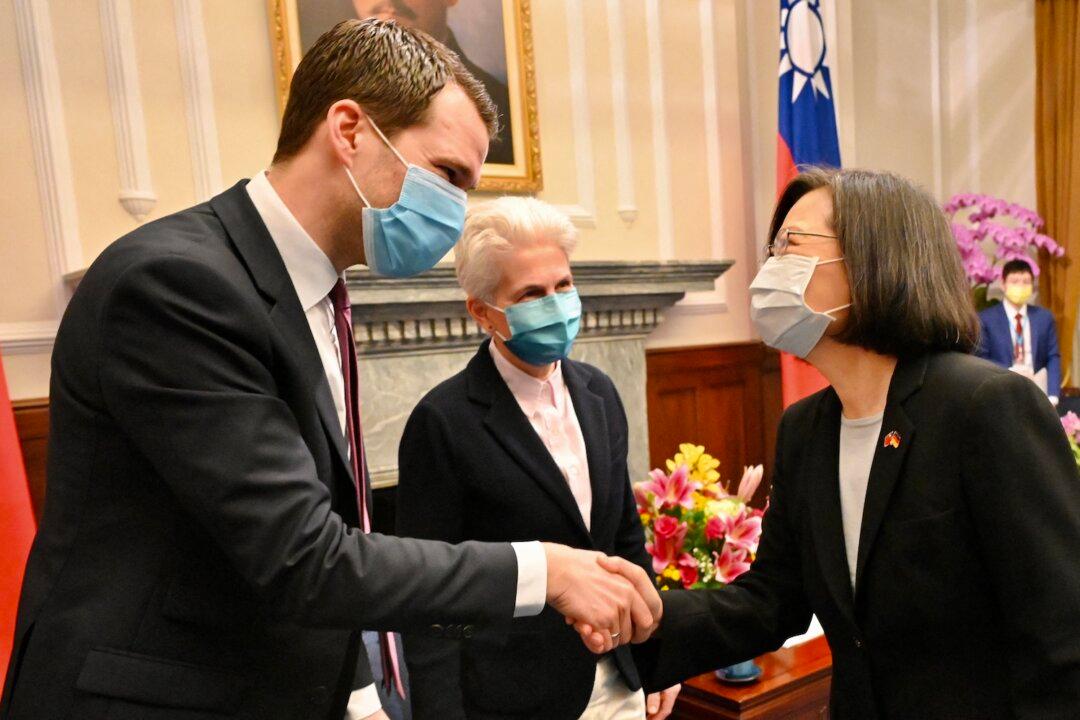German and Lithuanian parliamentary delegates traveled to Taiwan this week to meet with Taiwanese defense officials as the Chinese Communist Party (CCP) continued to exert military pressure on the self-ruled island.
Lithuania’s nine-member delegation arrived in Taiwan on Sunday for a six-day visit “to demonstrate the solidarity and cooperation of frontline democratic countries,” according to Taiwan’s Foreign Affairs Ministry.





